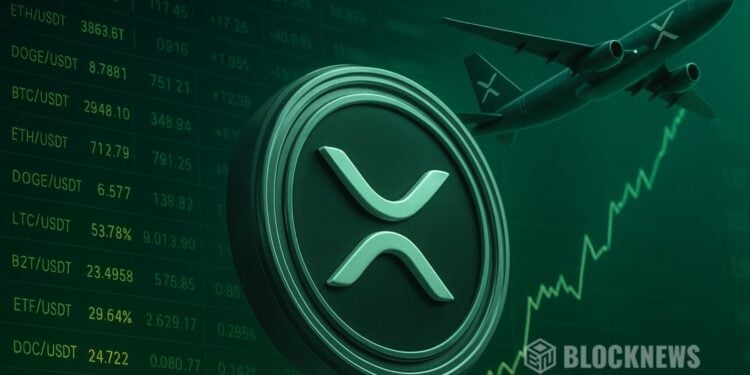- Webus and Air China are integrating XRP into PhoenixMiles, unlocking access to 60M+ loyalty members.
- XRP Ledger upgrades (XLS-70, XLS-80, and a new DEX) could drive institutional adoption.
- Ripple’s ecosystem is positioning XRP as a compliance-friendly, scalable solution for travel, banking, and beyond.
Webus International just landed a massive deal with Air China, setting the stage for blockchain payments in one of the world’s busiest travel markets. The partnership opens direct access to PhoenixMiles, Air China’s loyalty program with over 60 million members. The big play here? Prepping XRP as a payment option for tickets, rewards, and more.
Webus says blockchain settlement could slash costs and delays that often plague cross-border transactions. With XRP’s near-instant settlement times, airlines and passengers might finally get a smoother experience. For Air China, adding blockchain features also makes PhoenixMiles more competitive, offering travelers new ways to earn and spend points across flights, hotels, shops, and even regional transport.
Why XRP Fits the Aviation Model
The company emphasized it picked XRP because of scale—airline transactions run into huge volumes daily, from ticket sales to loyalty redemptions. XRP’s speed and low cost make it a practical choice for handling that load. Webus also flagged regulatory compliance as central, working with Ripple’s enterprise network and regional regulators to stay within legal frameworks.
Air China, meanwhile, gets a chance to lead the digital shift in aviation loyalty. With future expansion planned across Asia and Europe, this could be the first domino in a broader rollout of XRP-backed travel services.
XRP Ledger Upgrades Spark Institutional Interest
The timing couldn’t be better. While the travel partnership made headlines, analysts in the XRP community pointed to upcoming XRPL upgrades that could change how institutions use it. These include:
- XLS-70: digital credentials baked into wallets, proving compliance with KYC/AML.
- XLS-80: permissioned domains for closed, institution-only markets.
- A new DEX: letting banks and funds trade stablecoins, forex, and XRP directly.
These tweaks could push institutions to hold more XRP in liquidity pools, creating scarcity and possibly fueling long-term price impact. Still, it depends on adoption and how fast regulated players move in.
Ripple’s Role in Expanding Real-World Use
Ripple Labs remains the backbone, offering enterprise-grade tools to connect firms and financial networks. By enabling projects like Webus to experiment safely within regulatory guardrails, Ripple is quietly extending XRP’s reach across industries.
For Webus, the Air China tie-up isn’t just a one-off—it’s a test case for blockchain in global travel. And for XRP, it’s another step toward cementing its role in fast, low-cost cross-border settlement. From airlines to banks, the same story is unfolding: XRP is inching deeper into regulated markets, ready to move when demand really kicks in.














